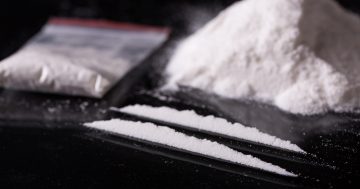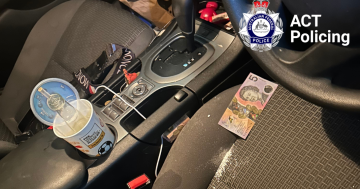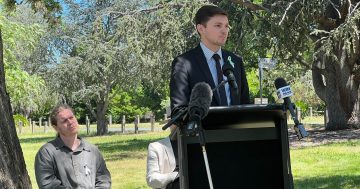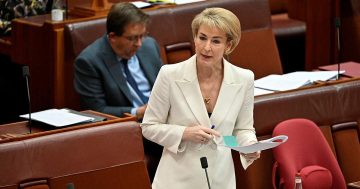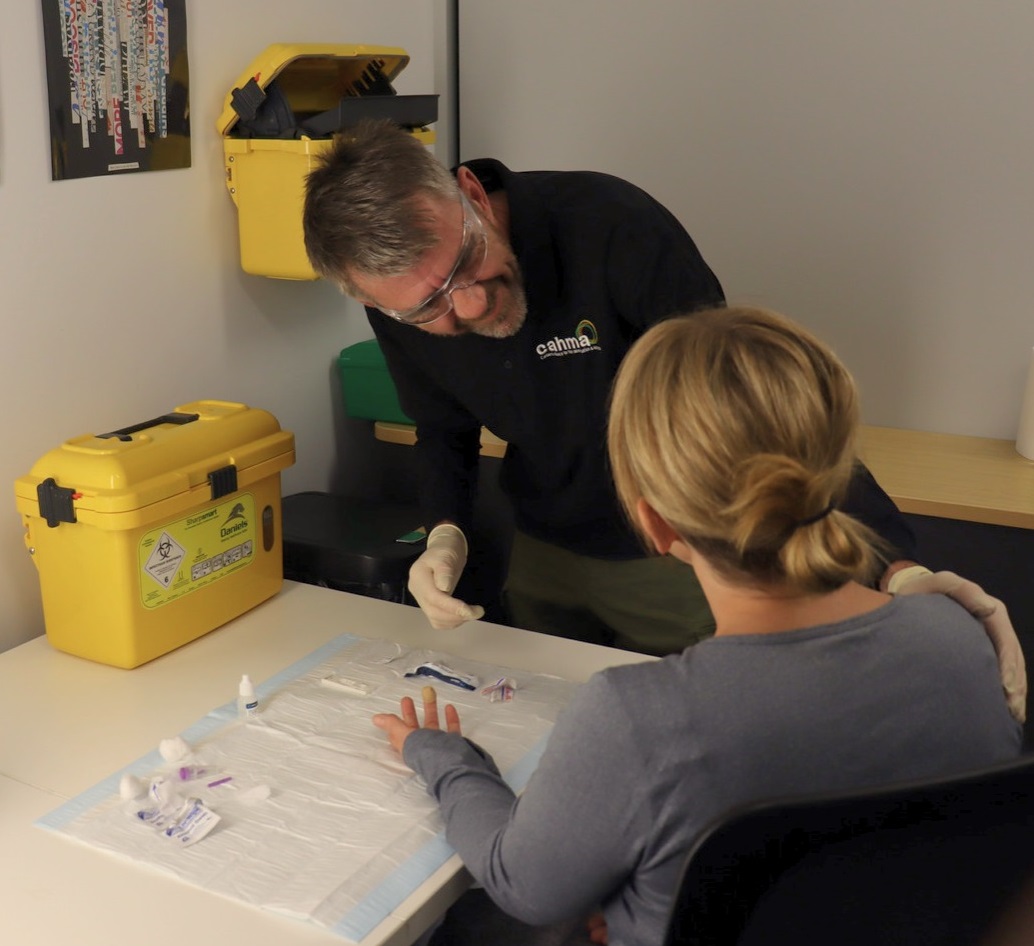
It’s hoped more people will seek support for their drug use at services such as CAHMA as a result of drug decriminalisation laws coming into effect. Photo: CAHMA Facebook.
“This is about a change of mindset in the way that we treat illicit drug use in our community … from thinking about drug use as a criminal issue to thinking about it as a health issue, while at the same time ensuring that police retain strong powers and our community retains strong penalties in relation to any supply, dealing, trafficking, of these illicit drugs.”
Health Minister Rachel Stephen-Smith has made a final effort to clear up any confusion around the ACT’s drug decriminalisation laws, which came into effect at midnight last night (28 October).
She said the decriminalisation will allow drug use to be treated as a health issue rather than a criminal one.
“This is not about a free-for-all, it is not legalisation, and it is not about condoning, supporting or encouraging the use of drugs in our community,” Ms Stephen-Smith said.
She admitted while it’s unknown exactly what will happen, a huge uptick in cannabis use didn’t occur when that drug was decriminalised three years ago.
“What we will see evidence of is people being more confident to come forward and seek help, whether that is health support or whether that is advice about reducing the harm associated with recreational use of drugs,” Ms Stephen-Smith said.
Canberra Alliance for Harm Minimisation and Advocacy executive director Chris Gough agreed, stating the organisation had seen a four-fold increase in the number of people seeking help to quit cannabis as people no longer feared they would receive a criminal record as a result.
“We’re not expecting to see people on Monday lining up outside CAHMA to get drug treatment, but we are expecting that we will see a gradual increase in people coming into our services to seek help,” he said.
“We’re really hoping people are going to start … having those conversations and realise, ‘I don’t need to hide, I know I’ve got a health issue and now I’m going to seek help for it’.
“We are hoping that we’ll see people looking to seek help instead of hiding in fear.”
Mr Gough said he understood concerns from the community that drug use would increase, but those fears were unfounded.
“If you do come to Canberra thinking it will be some kind of ‘drug paradise’, you’ll be sadly mistaken,” he said.
“The key part of this legislation … is that the drugs are still taken away from the person.”
The ACT’s Chief Police Officer Neil Gaughan also wanted the community to understand the Territory would not be a place where people could take drugs freely under the law change.
“This Australian-first legislation reduces the penalty for the possession of small amounts of illicit drugs in the ACT,” he said.
“Drug possession remains a criminal offence – the legislation has simply reduced the penalties that now apply.”
If someone is found by police to be in possession of a small amount of decriminalised drugs, the process will be:
- The drugs are seized by police, with the officer confirming the person’s identity and the circumstances of the matter.
- The individual is asked if they consent to a health session. If yes, they’ll be referred and once the session is completed, the matter is considered finalised.
- If the person does not consent to a health session, they can be issued with a Simple Drug Offence Notice (SDON), which will be posted at a later date. This can be cleared by paying the $100 fine in 60 days or attending a health session.
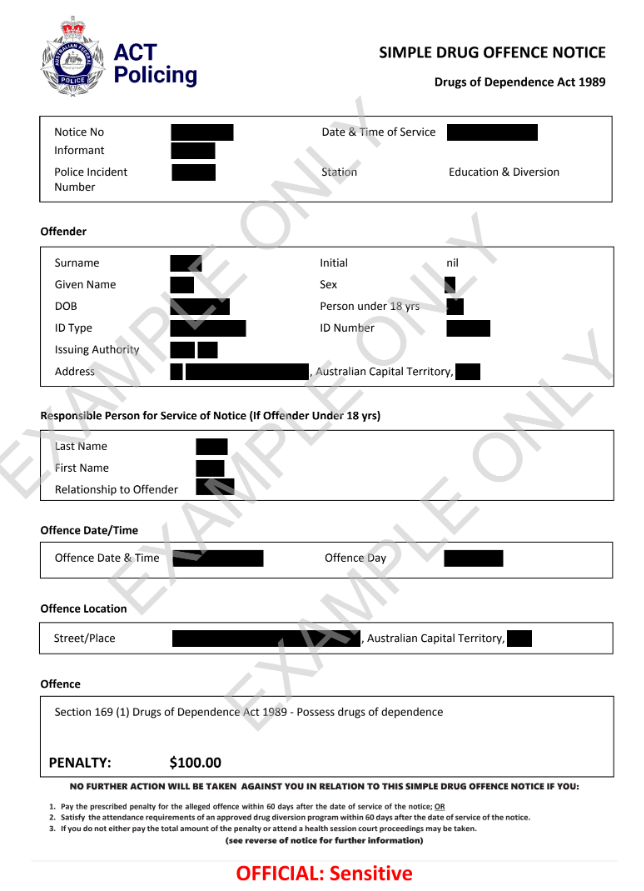
A simple drug offence notice, such as the one pictured, can be issued if a person is found with small amounts of decriminalised drugs. Photo: ACT Policing.
This process is only an option where no other offences have allegedly been committed at the time. If another offence is alleged, such as an assault or drug driving, the person may still be charged if found with small amounts of drugs.
Police also maintain the discretion to take the matter to court for those who do not comply with the health session or fine.
ACT Policing has spent the last 12 months working with ACT Health and other stakeholders on the implementation of the changes, as well as training officers on how to police the new law.
This includes advising licensed premises and businesses to understand that nothing changes for them, including around drug use at entertainment venues.
“Nothing changes in terms of their rights or their responsibilities in managing their own venues,” Ms Stephen-Smith said.
“If a patron is causing [a venue] concern, they can always call the police, who can intervene in those situations.”
Drug driving laws have not changed, meaning it remains an offence to have any amount of illicit substance in your system while driving.
The legislation will be reviewed after two years.












